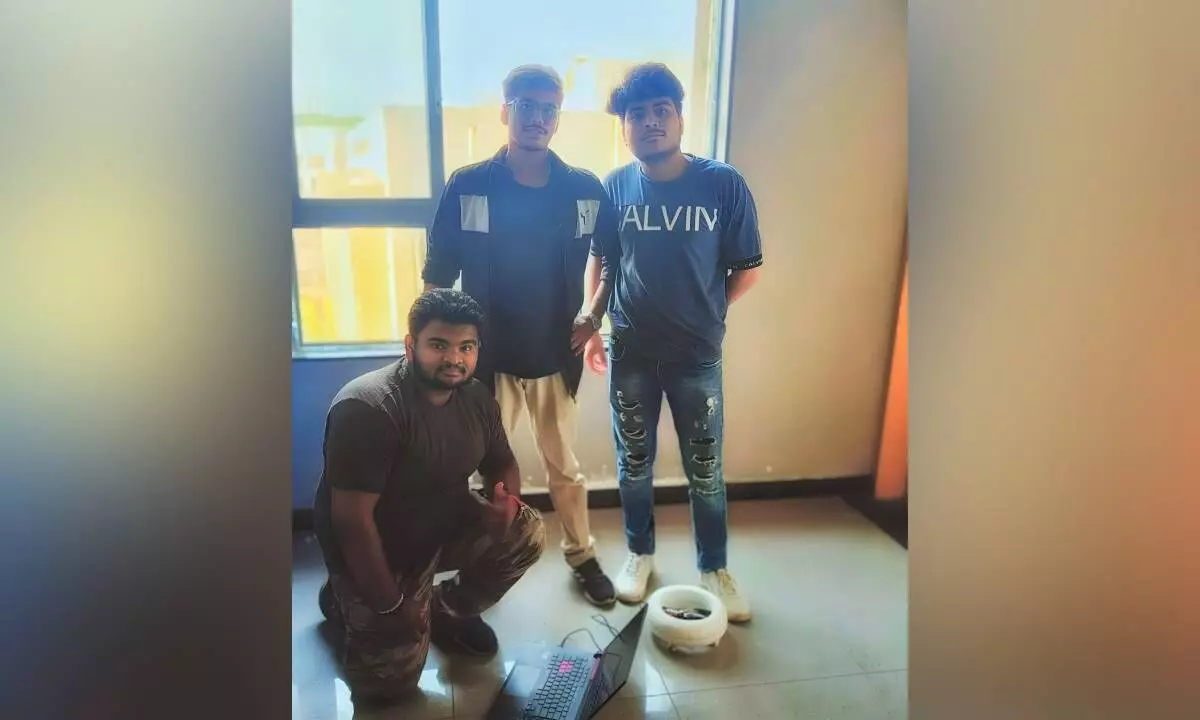Ancient Wisdom meets modern innovation: Indian Students Develop Stealth Drone
India's resurgence in scientific research, emphasizing the blend of ancient wisdom with modern advancements, exemplifies the subcontinent's enduring innovative spirit. In 1951, GR Josyer, a prominent figure at the International Academy of Sanskrit Research in Mysore, discovered the Vaimānika Shāstra manuscripts written in Sanskrit. By 1959, these manuscripts had been translated into Hindi
image for illustrative purpose

Mumbai, Jul 03: India's resurgence in scientific research, emphasizing the blend of ancient wisdom with modern advancements, exemplifies the subcontinent's enduring innovative spirit. In 1951, GR Josyer, a prominent figure at the International Academy of Sanskrit Research in Mysore, discovered the Vaimānika Shāstra manuscripts written in Sanskrit. By 1959, these manuscripts had been translated into Hindi.
The Vaimānika Shāstra comprises 3,000 slokas in 8 chapters, featuring beautifully illustrated and labelled pictorial representations of various vimanas, including the Sundara Vimana, Tripura Vimana, Shakuna Vimana, and Rukma Vimana and so on. This spirit fuelled a project by three second-year B. Tech students of Computer science engineering and applications at DY Patil International University (DYPIU). Inspired by the legendary Sanskrit texts, the Vaimānika Shāstra, Atharva Abhijeet Chitale, Adveith Walke, and Sachin Meena developed a prototype drone under the guidance of Dr Shubhro Chakrabartty and DVandna Srivastava. Their creation, drawing on ancient wisdom, promises to revolutionize the drone industry. The innovative design boasts a lightweight structure and a low Radar Cross Section (RCS). This translates to superior stealth capabilities, allowing the drone to evade radar detection while maintaining effective radio wave communication.
This breakthrough has been accepted for publication at the prestigious 8th International Conference on Computing, Communication, Control, and Automation (IEEE). Additionally, an Indian design patent has been filed for the project. This achievement is a testament to DYPIU's dedication to fostering a culture of creativity and research excellence. The product-based research environment, nurtured by Vice Chancellor Dr. Prabhat Ranjan's leadership and support, provided the essential resources for the students' success.
Talking to Bizz Buzz, Dr Shubhro Chakrabartty a faculty of the University, says, “From ancient mathematics to modern space exploration, India's scientific legacy thrives on the continuous dialogue between tradition and progress.”

